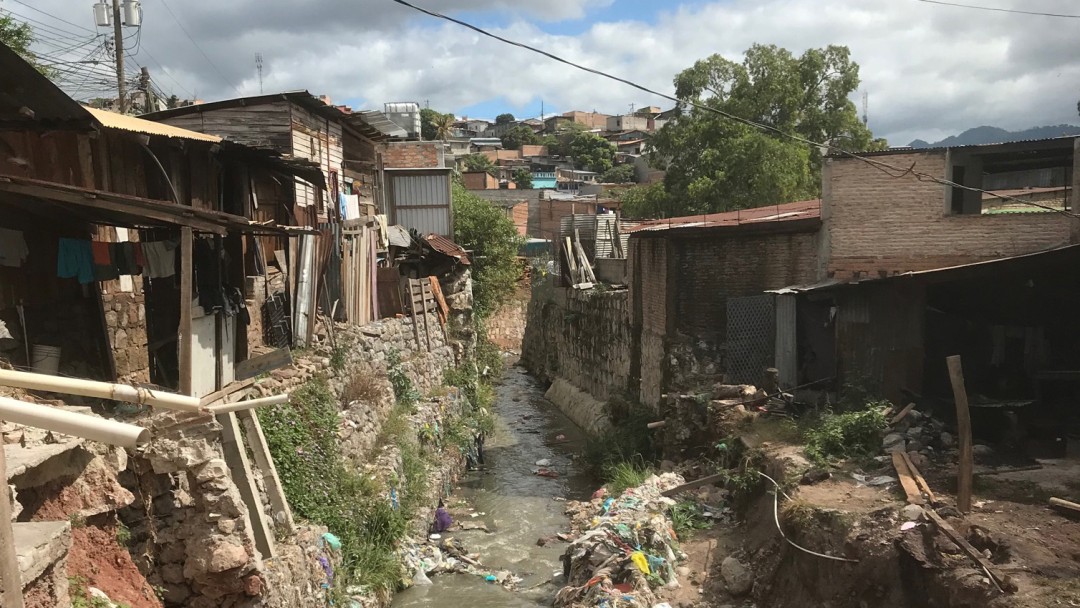News from 2020-01-28 / KfW Development Bank
Protecting poor neighbourhoods in El Salvador against natural catastrophes

On behalf of the Federal Ministry for Economic Cooperation and Development (BMZ), KfW is providing EUR 23 million for measures to protect poor neighbourhoods in El Salvador’s capital city against natural catastrophes. As a result of climate change, the number of floods and landslides is on the rise in the Central American country. The contract for the project was signed in December 2019.
El Salvador is one of the countries most heavily affected by climate change. Cyclones and hurricanes bring heavy rain, which triggers floods and landslides. In the metropolitan region of the capital city San Salvador, the neighbourhoods that are home to poorer communities are particularly at risk.
Over the next five years, KfW will promote extensive construction measures to protect the shanty towns. This work will include, for example, the construction of systems for rain water seepage and the forestation of water catchment areas to limit flood levels in the event of flooding. Embankments will be stabilised to stop buildings from sliding. Residential buildings in poor neighbourhoods will be protected against high winds with stronger roofs, walls and foundations. If these measures cannot provide a suitable level of protection, new living space will be made available in secure areas for individual families.
Education and awareness
However, this work is still not enough. In addition to the construction measures, an early warning system is also planned. Residents, neighbourhood groups, authorities and tradespeople will receive training on how to better deal with the risks of climate change and suitable measurement stations will also be installed. The programme will be implemented jointly with the Ministry of Public Works, Transport, Housing and Urban Development, which is working closely with the Ministry of Environment and the civil protection authorities. “Particularly in the informal settlements, which are home to around 600,000 people, the level of protection against natural catastrophes is nowhere near adequate,” says KfW expert Katrin Enting-Pauw. “They require particularly rapid support.”
Benefiting the poor in particular
This will be the first time that KfW is promoting a project in the field of climate change mitigation in urban areas of El Salvador. It is already involved in a similar project in the neighbouring country of Honduras, which also aims to protect the population in poor urban areas of the capital city. A regional GIZ programme on catastrophe risk management in Central America is due to be launched in 2020 to complement the two KfW programmes.

Share page
To share the content of this page with your network, click on one of the icons below.
Note on data protection: When you share content, your personal data is transferred to the selected network.
Data protection
Alternatively, you can also copy the short link: https://www.kfw-entwicklungsbank.de/s/enzBWrMC.CJpA
Copy link Link copied